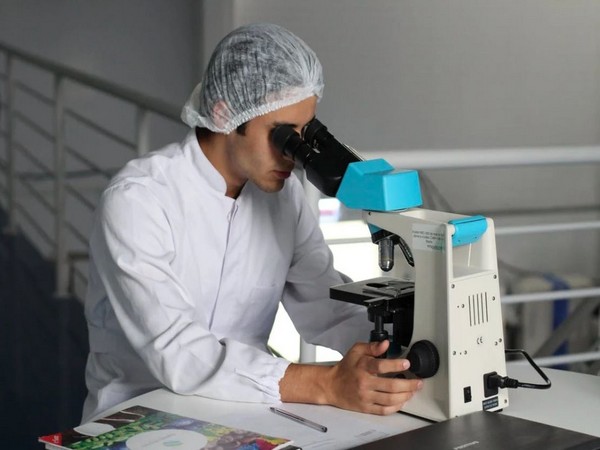Study reveals how inflammatory signs for adolescent depression differ between boys, girls
Inflammatory proteins differ in boys and girls, and new research led by the Institute of Psychiatry, Psychology & Neuroscience (IoPPN) at King's College London has revealed a relationship between depression and the risk of depression.

- Country:
- United Kingdom
London [UK], September 13 (ANI): Inflammatory proteins differ in boys and girls, and new research led by the Institute of Psychiatry, Psychology & Neuroscience (IoPPN) at King's College London has revealed a relationship between depression and the risk of depression. Numerous proteins known as cytokines are released into the blood when inflammation takes place in the body. Higher cytokine levels have been linked to depression in adults, according to other studies, but less is known about this connection in adolescents.
Researchers looked into how inflammation-related proteins and sadness varied according on sex. According to a study that was written up in the Journal of Affective Disorders, guys were more likely than girls to experience depression and to experience it more severely. The study was financed by MQ Mental Health Research as a component of the IDEA (Identifying Depression Early in Adolescence) initiative. To assess inflammation, researchers measured the blood cytokine levels in 75 adolescent boys and 75 adolescent girls (aged 14-16 years) from Brazil. The 150 participants had been recruited into three groups with equal numbers (50 participants in each group: 25 girls and 25 boys). The groups were those at low-risk for depression and not depressed, those at high risk of depression and not depressed, and those currently experiencing major depressive disorder (MDD).
The findings indicated that there are sex differences between the individual inflammatory proteins that are associated with depression in adolescents. Higher levels of the cytokine interleukin-2 (IL-2) were associated with both increased risk for depression and the severity of depressive symptoms in boys, but not in girls. However, higher levels of IL-6 were associated with severity of depression in girls, but not boys. In boys the levels of IL-2 were higher in the high-risk than the low-risk group and even higher in the group diagnosed with depression, indicating that in boys IL-2 levels in the blood could help indicate the onset of future depression. Dr Zuzanna Zajkowska, Postdoctoral Researcher at King's IoPPN and first author of the study, said,
"This is the first study to show differences between boys and girls in the patterns of inflammation that are linked to the risk and development of adolescent depression. We found that the severity of depressive symptoms was associated with increased levels of the cytokine interleukin-2 in boys, but interleukin-6 in girls. We know more adolescent girls develop depression than boys and that the disorder takes a different course depending on sex so we hope that our findings will enable us to better understand why there are these differences and ultimately help develop more targeted treatments for different biological sexes." Researchers recruited adolescents from public schools in Brazil. Risk of depression was assessed by a composite risk score for depression based on 11 sociodemographic variables that had been developed as part of the IDEA project. Adolescents completed several questionnaires, self-reporting their emotional difficulties, relationships, experiences, and mood. They also completed a clinical assessment with a child and adolescent psychiatrist.
Senior author on the study Professor Valeria Mondelli, Clinical Professor of Psychoneuroimmunology at King's IoPPN and theme-lead for Psychosis and Mood Disorders at the NIHR Maudsley BRC, said, "Our findings suggest that inflammation and biological sex may have combined contribution to the risk for depression. We know that adolescence is a key time when many mental disorders first develop and by identifying which inflammatory proteins are linked to depression and how this is different between boys and girls we hope that our findings can pave the way to understanding what happens at this critical time in life. Our research highlights the importance of considering the combined impact of biology, psychology, and social factors to understand the mechanisms underlying depression." (ANI)
(This story has not been edited by Devdiscourse staff and is auto-generated from a syndicated feed.)
ALSO READ
Trailblazer in Finance: Shruti Tripathi Chopra Honored with Freedom of the City of London
Brazil's Justice Grants Bolsonaro Hospital Leave Amidst Controversy
Brazil's Bolsonaro Granted Medical Leave Amid Legal Turbulence
WHO Validates Brazil for Eliminating Mother-to-Child Transmission of HIV
London Stocks Surge on BoE Rate Cut and US Inflation Easing










